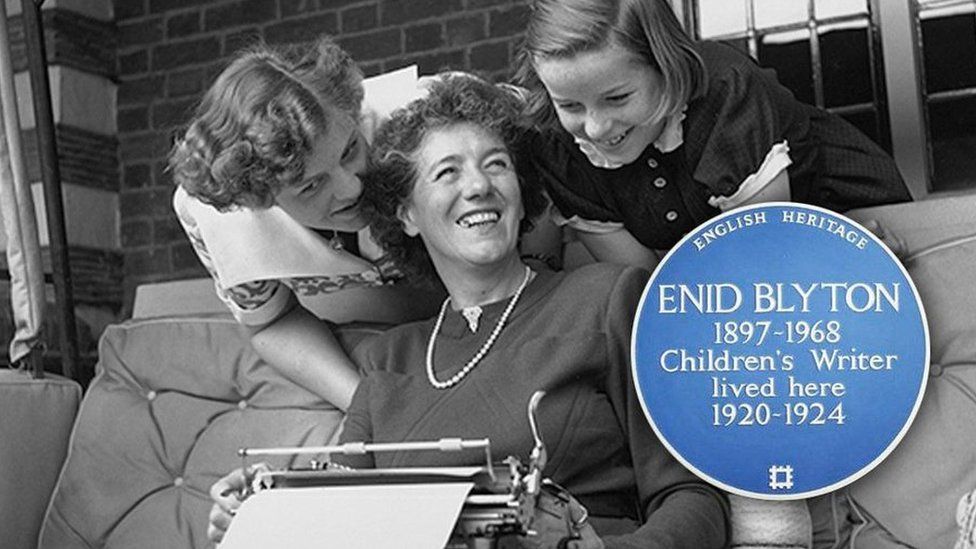Enid Blyton: English Heritage acknowledge racism in her work
- Published
- comments

Enid, with her two daughters Gillian and Imogen
English Heritage has updated its website to reflect children's author Enid Blyton's problematic views.
It comes after it made a pledge to review all of its blue plaques for links to "contested" figures following the Black Lives Matter protests last year.
A blue plaque is a special sign which is put on a building or public place to commemorate a link between a famous person and that place.
The English Heritage - a charity that manages over 400 historic monuments, buildings and places - has now updated their website to acknowledge her racist views.
Who was Enid Blyton?
Enid Blyton is a famous children's author who wrote books like the Famous Five, Malory Towers, and Noddy.
Her books became very popular in the 1930's and have sold more than 600 million copies worldwide.
Although Enid has been acknowledged for encouraging many children to read, she also held views that are problematic and racist, and faced criticism for her views during her lifetime.
For example, one of her books called The Little Black Doll was criticised for the negative way it represents black people, in an article in The Guardian newspaper in 1966.
In the past, publishers have refused to publish some of her books because they said they contained 'xenophobia' - which means a fear and hatred towards people or things from other countries.
What have English Heritage said?
English Heritage have updated their website with a section about her problematic views; part of it reads: "Blyton's work has been criticised during her lifetime and after for its racism, xenophobia and lack of literary merit."
They also said in a post online that they had no plans to remove any of their blue plaques, saying: "We can fit about 19 words on each plaque. Our website provides a fuller picture of the person's life, including any uncomfortable aspects."
In 2019, plans to give her a commemorative coin were halted by the Royal Mint because of her racist and sexist views.
- Published10 June 2020
- Published17 June 2020
- Published17 June 2020
